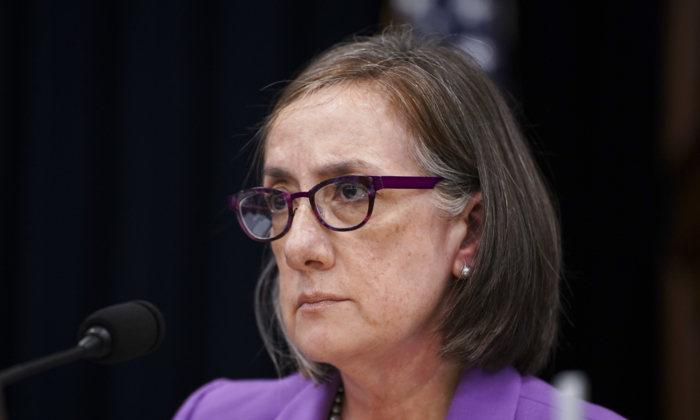Democratic incumbent U.S. Rep. Andrea Salinas and Republican challenger Mike Erickson are engaged in a closely contested race for Oregon’s Sixth Congressional District once again. This rematch follows Salinas’ narrow victory over Erickson in 2022 with a 50.1 percent to 47.7 percent margin.
Both major political parties have marked this district as a priority in the upcoming elections. Erickson has been named to the National Republican Congressional Committee’s “Young Guns” list, while Salinas is on the Democratic Congressional Campaign Committee’s “Frontline” list of vulnerable incumbents.
The Cook Political Report has labeled the race as a “toss-up,” with various election forecasters providing differing ratings ranging from Safe Democratic to Lean Democratic as of Oct. 17.
This race, along with two others in Oregon, could potentially impact which party gains control of Congress in 2025.
In addition to the Sixth District race, Freshman Congresswoman Val Hoyle and Republican Monique DeSpain are competing in Oregon’s Fourth District, while Republican Lori Chavez-DeRemer faces Democrat Janelle Bynum in District Five.
The Sixth District
The Sixth Congressional District was established after a 10 percent population growth was revealed in the 2020 census, making it Oregon’s first new congressional district in four decades. Salinas secured the district’s first elected representative position with her victory in 2022.
The district encompasses approximately 480,000 voters residing in Portland’s southern suburbs, the state capital of Salem, and rural areas west of Interstate 5. Independent voters outnumber registered Democrats and Republicans in the district.
Salinas, since taking office, has sponsored numerous bills focused on issues such as gun control, women’s health, reproductive rights, equality, and environmental justice. If reelected, she aims to continue her efforts to reduce living costs, improve healthcare access, address climate change, combat the addiction crisis, and enhance housing affordability for Oregonians.
Erickson, a supply chain and logistics consultant, prioritizes lowering inflation and the cost of living, securing the border, and promoting domestic oil production. He advocates for reducing national debt, lowering taxes, and bringing a business perspective to Congress.
On the Issues
Salinas and Erickson recently debated on Oregon Public Broadcasting, highlighting their differing stances on immigration, inflation, and other key issues.
Salinas proposes allocating more resources to help customs officials at the border and establishing a path to citizenship for certain undocumented immigrants. She co-sponsored the U.S. Citizenship Act in 2024, aiming to provide lawful status to eligible noncitizens.
On the other hand, Erickson emphasizes reforming the guest worker visa program to address illegal immigration and suggests reallocating resources to expedite the U.S. work visa process. He also focuses on reducing diesel prices as a means to combat inflation.
The Sixth District race remains a pivotal contest as Election Day approaches, with both candidates presenting contrasting visions for the future of Oregon and the country.
Every item you purchase has been transported by truck.
With diesel prices on the rise, he suggested a plan to achieve energy independence through fracking and other technologies to lower costs.
Salinas put forth a proposal for a bipartisan farm bill to stabilize the food supply chain and reduce grocery expenses.
This includes advancements in automation and mechanization on farms to lessen reliance on unpredictable labor sources.
She also plans to advocate for the Clean Electricity and Transmission Acceleration Act to streamline upgrades to the U.S. energy infrastructure, enhance supply, and lower energy costs.
Both candidates shared their perspectives on climate issues following a challenging fire season in Oregon.
Erickson criticized the current representative for not supporting the Fix Our Forests Act, H.R. 8790.
This legislation aims to promote active forest management, bolster community resilience to wildfires, expedite environmental assessments, decrease legal challenges, and ramp up forest restoration efforts.
Salinas argued against the bill, citing concerns about environmental protections like the Endangered Species Act being rolled back.
She emphasized the urgency of addressing the increasing intensity and duration of wildfire seasons.
Salinas proposed measures to monitor carbon emissions from timber production and allocate resources to agricultural industries for climate solutions.
Additionally, she introduced the Civilian Conservation Center Act to bolster firefighting and land management capabilities within the U.S. Forest Service.





